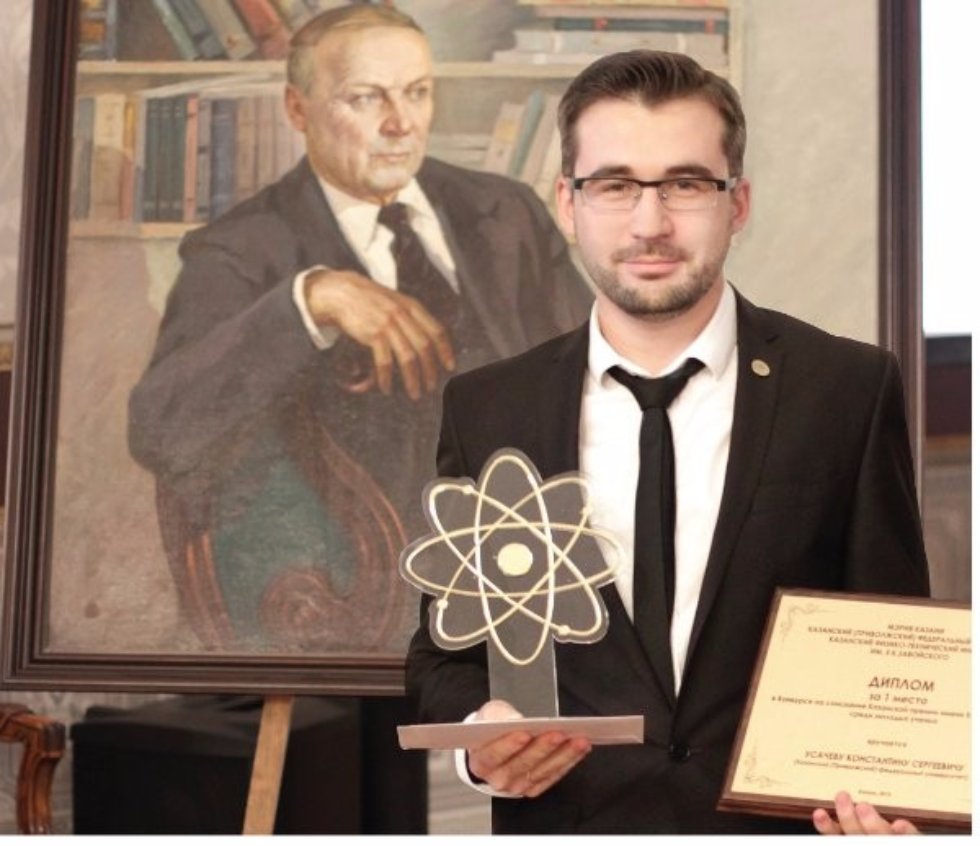Interdisciplinary Discovery Awarded at Kazan University

Yevgeny Zavoisky Prize award ceremony took place on October 28th at KFU.
Firsr degree diploma was given to Konstantin Usachyov, Associate Professor of the Department of Medical Physics, Senior Research Associate of the Structural Biology Lab and the Nuclear Magnetic Resonance Lab, for his research in cytotoxic peptides.
The NMR Lab (headed by Professor Vladimir Klochkov) is currently engaged in research of molecular solutions and biomolecules.
Nuclear magnetic resonance helps determine the inter-proton distances in molecules. Physicists decided to use this opportunity to find out how cytotoxic peptides lead to cell death.
They researched amyloids – basic «bricks» that form plaques in Alzheimer’s patients. Amyloid residues that tie amyloids together were thus discovered. Later the researchers explored the structure of the “arctic mutant” amyloid (its glutamine acid is replaced by glycine in the 22nd position). This particular genetic mutation leads to a vastly different clinical picture in patients with early onset Alzheimer’s disease.
After that the structural changes in protegrins (wide spectrum antimicrobial peptides which can be used in prospective antibiotics) were studied.
- We researched protegrins PG-2 and PG-3 and showed that their interaction in model cells resembles that of amyloids. We also researched dimers of protegrins molecules and showed how they to the perforation of cellular walls and cell death.
The Structural Biology Lab at which Dr. Usachyov is also employed works on ribosomal structures with the Strasbourg University team led by Professor Marat Yusupov. This joint task force works on new antibacterial drugs and cancer medications.
One of the problems in structural biology is the biosynthesis of proteins in a cell. Ribosomes – “molecular factories” – are in charge of that. If ribosomes can be influenced so as to stop protein synthesis, this can lead to cell death.
- We search for molecules that will only attack ribosomes of malignant cells. This will help reduce dosage of medications and side effects, - told us Dr. Usachyov.
Ribosomal dimers are also studied at Dr. Yusupov’s lab.
- Known antibiotics are ineffective against ribosomes of Staphylococcus aureus. If we research the Staphylocci’s ribosome structure, we then can create stress condition to dimerize them. This will allow antibiotics to react with them and thus probably cure these dangerous infections.